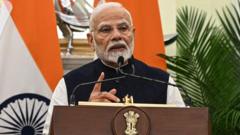
Australia’s government is set to introduce groundbreaking legislation to ban children under 16 from social media, with Prime Minister Anthony Albanese positioning the move as a critical step to protect young people’s mental health and safety online.
The proposed law, to be tabled in parliament next week, aims to address growing concerns about the harmful effects of social media on children. Albanese emphasized the legislation is “for the mums and dads” who are worried about their children’s online experiences.
Key details of the proposed ban include:
– No age limit exemptions, even with parental consent
– Social media platforms will be responsible for preventing underage access
– No penalties for users
– Enforcement by the eSafety Commissioner
– Legislation to be implemented 12 months after passing, with a subsequent review
While the government sees this as a protective measure, experts and child rights advocates have raised significant concerns about the approach. Many researchers argue that outright bans may be counterproductive, potentially delaying rather than preventing children’s exposure to social media platforms.
The Australian Child Rights Taskforce, along with over 100 academics and 20 civil society organizations, has suggested alternative approaches. In an open letter to the government, they recommended imposing “safety standards” on social media platforms instead of a complete ban, aligning with UN guidance about providing safe digital access for children.
Conversely, grassroots campaigners support the ban, citing serious risks to children’s mental health. The 36Months initiative, which has gathered over 125,000 petition signatures, argues that excessive social media use is “rewiring young brains” and contributing to a mental health crisis among adolescents.
Albanese defended the comprehensive ban, highlighting the power imbalance between tech companies and vulnerable young users. He pointed out that even adults struggle with invasive algorithms and unwanted content, making children particularly susceptible to potential harm.
Previous attempts to restrict social media access, including efforts by the European Union, have largely been ineffective. Challenges remain around implementation, particularly given the existence of tools that can circumvent age-verification requirements.
The proposed legislation represents a bold approach to addressing digital safety for children, reflecting growing global concerns about social media’s impact on young people’s psychological development. However, the debate continues about whether outright prohibition or comprehensive digital literacy education is the most effective strategy.
The law, if passed, would be a significant international precedent in regulating children’s access to social media platforms, potentially influencing similar discussions and policies in other countries concerned about online safety for minors.








